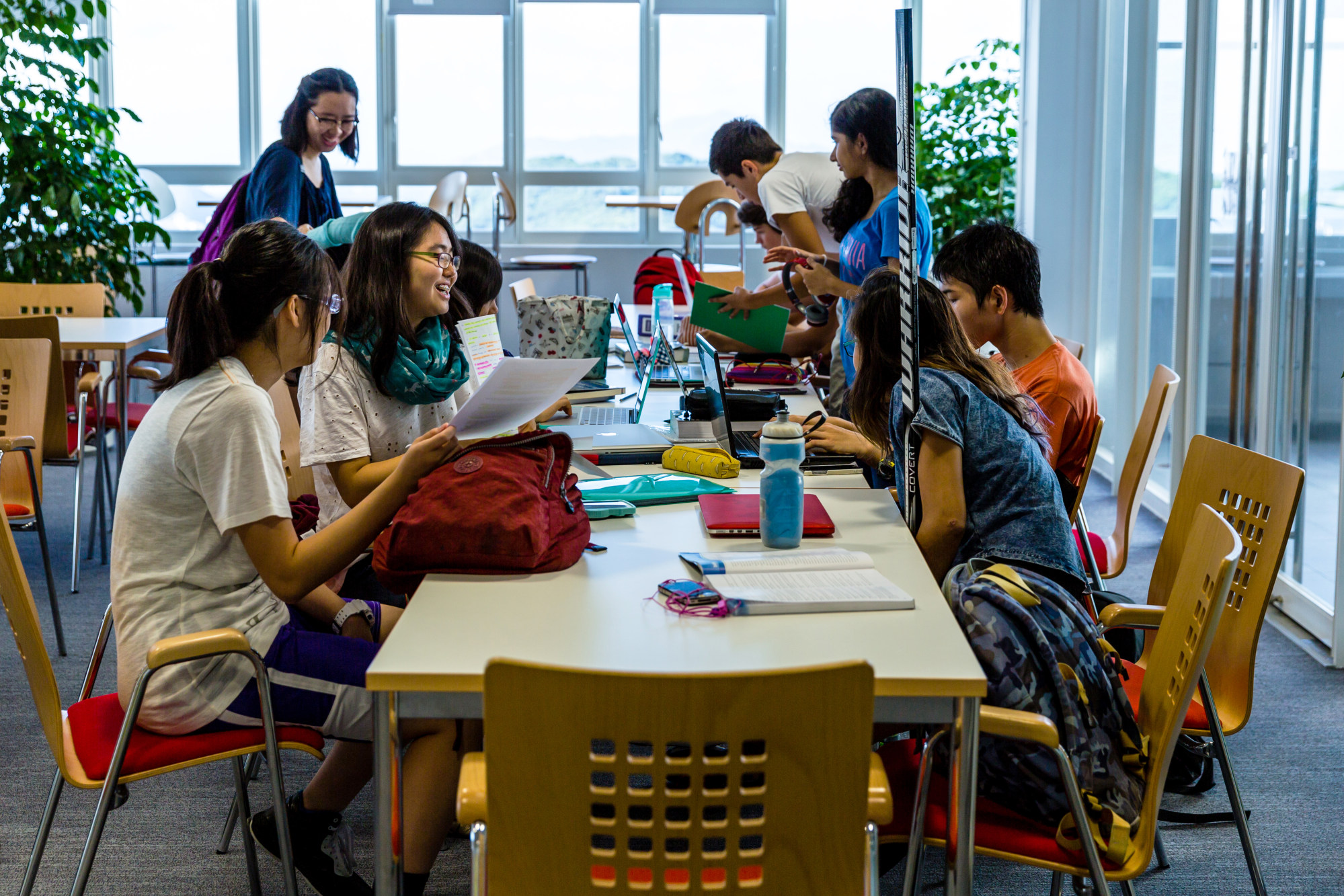
How Hong Kong schools are mentoring the leaders of the future through opportunities to practise the skills in clubs, workshops, assemblies – even Model United Nations
- Leadership training isn’t about learning to be the boss, but about developing attributes and attitudes that enable teams to perform well
- Duff Douglas, at the Canadian International School, says they have ‘a moral obligation to equip our students with the skills and qualities to lead effectively’
The concept of leadership clearly means different things to different people. For some, it is all about having the organisational skills to set targets, run teams, overcome challenges and achieve results.
For others, what counts more is the interpersonal aspect, in essence the communication and listening skills, plus the moral qualities and standing, to get the best out of others, whatever the situation calls for, and in doing so to serve as both example and inspiration.
Of course, when schools in Hong Kong talk about developing tomorrow’s leaders – a regularly occurring theme in their discussions with parents and students – they are in effect using the phrase as shorthand to cover all of the above.
In a borrowing from the world of business, they have adopted leadership as the catch-all term to cover the teaching of those nebulous yet vital elements which should be part of every curriculum.

These range from taking responsibility to cooperating with others, from effective planning to being involved in the community and in no doubt about what is right.
The underlying lessons are nothing new. But what has changed is the frameworks and contexts in which they are taught, as well as the extent to which universities and future employers continue to accord greater weight to related activities and experiences.
“As a school, we have a moral obligation to equip our students with the skills and qualities to lead effectively in the 21st century,” said Duff Douglas, upper school principal of student life and leadership at the Canadian International School of Hong Kong (CDNIS). “We need to plan and instruct them, providing guidance on soft skills such as how to gain trust, work collaboratively, strategise, be empathetic, manage conflict and how to delegate. Our mantra is to learn by doing, and we recognise that students learn best when they are coached and mentored by trained educators and given opportunities to try out their skills in authentic, real-world situations,” he said.
To this end, CDNIS organises a special leadership training programme for “student executives” at the start of the academic year. Around 25 per cent of the upper school is invited to take part, drawn from the 75-plus student-led clubs operating for grades six to 12.
This year, the two-day training course took place off-site, with sessions led by teachers and senior students covering everything from how to establish a group and empower its members to how to generate publicity and market an event.
“Each year, there is a different focus or theme,” Douglas said, “This time, it was measurability or how, as leaders, they will gauge their success. After the training, students are ready to get to work with their committees to plan events, but all the while supervised by teachers who are there to act as sounding boards for thoughts and ideas,” he said.
This, he added, is essential since it encourages necessary reflection and cross-checks. Also, the definition of success is kept deliberately broad. Each club sets its own KPIs (key performance indicators). The prime objective might be to increase membership, campaign for a cause, or raise awareness about climate change. When reviewed, though, the emphasis is on the learning involved and areas for improvement next time around.
“At CDNIS, we believe success can come in many forms and celebrate all types of leadership,” Douglas said. “We realise that a good leader is not necessarily the person in the spotlight or holding the microphone, the people ‘behind the scenes’ are equally crucial. Our club system gives every student opportunities to stretch and develop their skills and abilities in a high-functioning group. And, importantly, the diverse roles and leadership positions mimic what is seen in the real world.”

For Mark Steed, principal and chief executive of Kellett School, all students are capable of leading effectively. It is not a question of natural disposition, early exposure, or having specific role models. It is simply a matter of mastering the requisite skills and acquiring the confidence to get on and do it.
“A good education will create appropriate opportunities,” Steed said. “Of course, leadership training isn’t about learning to be ‘the boss’. Rather, it is about developing the attributes and attitudes that enable teams to function well, and it is best learned ‘on the job’ by doing, within as many contexts as possible.”
At Kellett, that starts with a strong prefect system which gives students responsibility for organising arts, sports, volunteer initiatives, and projects focusing on well-being, diversity and sustainability. In addition, seniors receive training to act as peer mentors and offer a general kind of “mental health first aid” for those in need of extra support and encouragement or just looking for someone to talk to.
The school also has a carefully conceived innovation programme, which is an integral part of the curriculum from Year 5. In these lessons, students working in teams have to solve complex problems. The nature of the tasks means each member of the team needs to step up and take a turn as leader of each aspect. And the projects are such that progress can only be made through a process of trial and error.
So, here, the key to being a successful team is to learn from “failures”, respect and make use of each person’s strengths, and value characteristics like resilience and out-of-the-box thinking. The importance of these and other traits is also discussed in weekly well-being lessons as part of the “Positively Kellett” initiative, which deals with ways to handle new challenges and the soft skills essential for making your way in the world today.
“Leadership is both an attitude and a skill,” Steed said. “However, it needs to be fostered in a supportive environment where there is sufficient challenge for students to stretch themselves, but not too great a challenge, which might otherwise demoralise.”
Nord Anglia International School Hong Kong (NAISHK) has also introduced supplementary programmes to get all students thinking and acting the right way. One focuses on well-being, resilience and purpose. The other, lasting half a term, is on responsibility. Both afford a chance to hear the “student voice” and, step by step, explain the art of motivating, influencing and directing teammates and of working together in harmony to achieve shared goals.
“Being able to keep an open mind and listen to others is a key element,” said Scott MacKinnon, deputy head of secondary at NAISHK. “As a school, we want our students to be risk takers, so being brave enough to try something, learning from mistakes, and being prepared to accept failure are also important aspects,” he added.
MacKinnon explained that students are asked to work on portfolios, which relate to specific areas the school is looking to improve. Besides sparking ideas, the aim is to give leadership experience, help to define identities, develop the knack of building relationships within teams, and show the importance of completing assigned tasks on time. With all that happening, it is also an excellent way to enhance interpersonal and communication skills and put logic and reasoning to the test.
Recently, for instance, the well-being portfolio team led an assembly and other activities to mark World Mental Health Day, planning and managing everything involved. In tandem, other groups are taking charge and pushing for improvement within the school in areas ranging from environment, sports and extracurricular activities to equality, diversity and inclusion.
“Giving students the autonomy and ownership to lead on initiatives is important to their belonging and purpose,” MacKinnon said, noting the school actively encourages participation in parent events, open days, Model United Nations and weekend workshops with peers from overseas. “But we realise too that some students might not want to be leaders, which is not to say they lack ambition. Every individual is different, so we give them time to talk and pride ourselves on personalised learning, knowing each child’s motivation, and unlocking their potential,” he said.
According to Dr Robin Lister, founding headmaster of Malvern College Hong Kong, any good school will incorporate leadership training for its pupils through a combination of lessons, talks, assemblies and a number of other opportunities.
However, the current vogue for emphasising this particular facet should not deflect from the development of other skill sets – problem solving, risk management, diplomacy – which may be no less essential over the course of a lifetime.
“For Malvern, leadership is serving your community rather than concentrating on one’s own ego or seeking power,” Lister said. “Underlying everything, there must be a rudimentary understanding of this philosophy.”
As a school, we have a moral obligation to equip our students with the skills and qualities to lead effectively in the 21st century
Typically, some of the best ways to learn the basics include taking part in camping, hiking or orienteering expeditions where decisions must be made and things do not always go as planned. Just as good is being in a sports team, choir, orchestra or performing arts groups. And then there are all the positions to try for in clubs, societies, committees, lobby groups and within the school hierarchy.
“When pupils are taken out of their comfort zones and tasked to complete various assignments, they develop leadership skills almost by default,” Lister said. “But listening skills are pivotal, and being responsible for your decisions is an unavoidable and intrinsic element.”
At Australian International School Hong Kong (AISHK), specific leadership activities begin as early as Year 2 and are linked to lessons about citizenship and being aware of the balance between rights and responsibilities, as well as the concept of social justice.
Subsequently, there are many opportunities to gain experience of real-life situations, but within a safe and protective school environment.
For instance, secondary students have the chance to coordinate TEDxYouth conferences, planning and organising everything from venue hire and sponsorship to speaker line-ups, audience invitations and catering.
Similar tasks are involved in running large-scale Model United Nations events. And a student-led YES (Youth Experiencing Service) Club brings together volunteers keen to do something meaningful in the local community – whether assisting at food kitchens, visiting the elderly, working on recycling projects or tutoring children from underprivileged families.
“That initiative continues to go from strength to strength,” said Howard West, head of school at AISHK. “Teachers and students build the understanding of leadership together, holistically through the curriculum and by the way we interact with each other and participate in school life. In this way, students develop their own understanding and their capacity to lead and influence others in a responsible and age-appropriate manner.”
